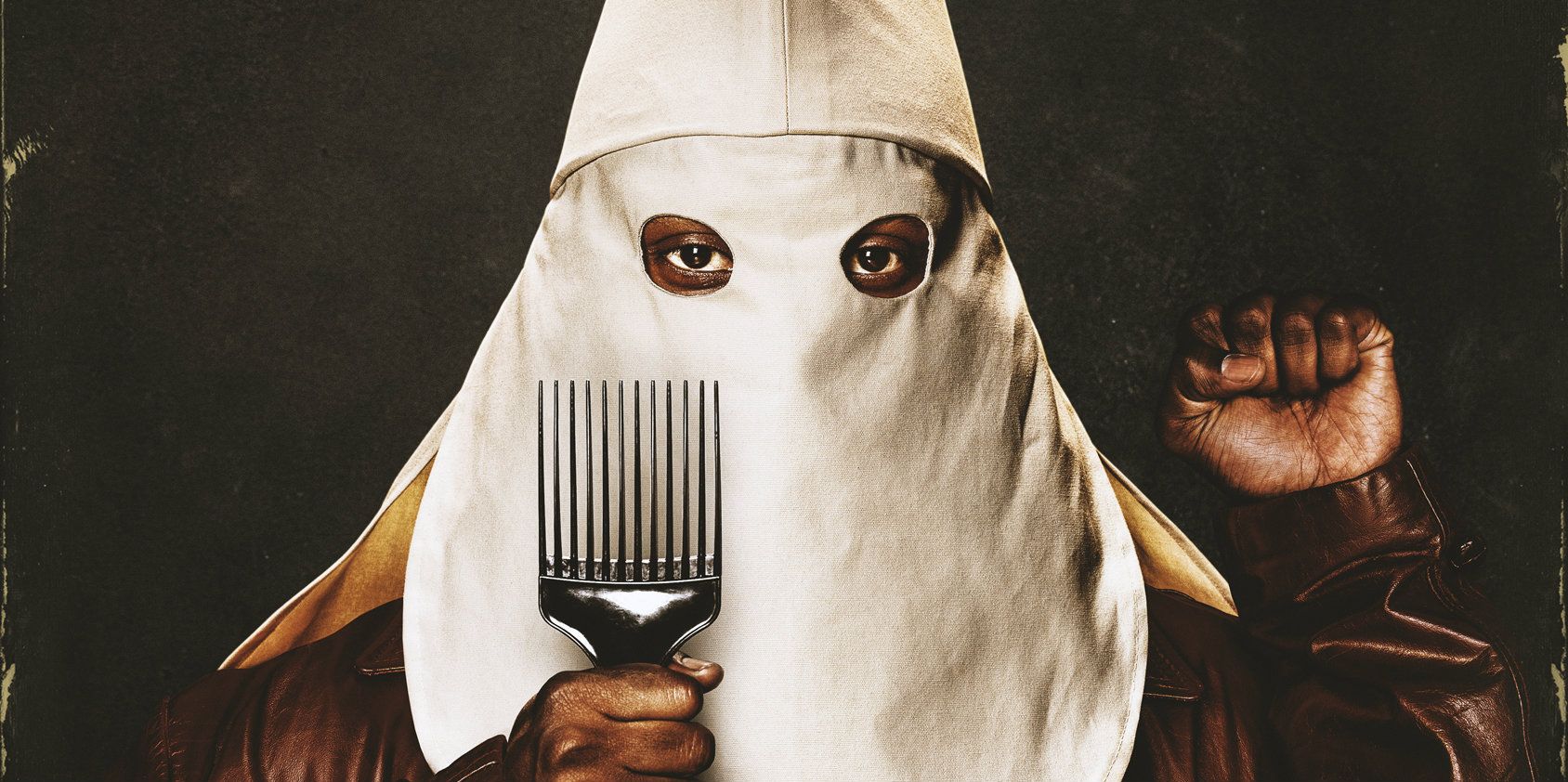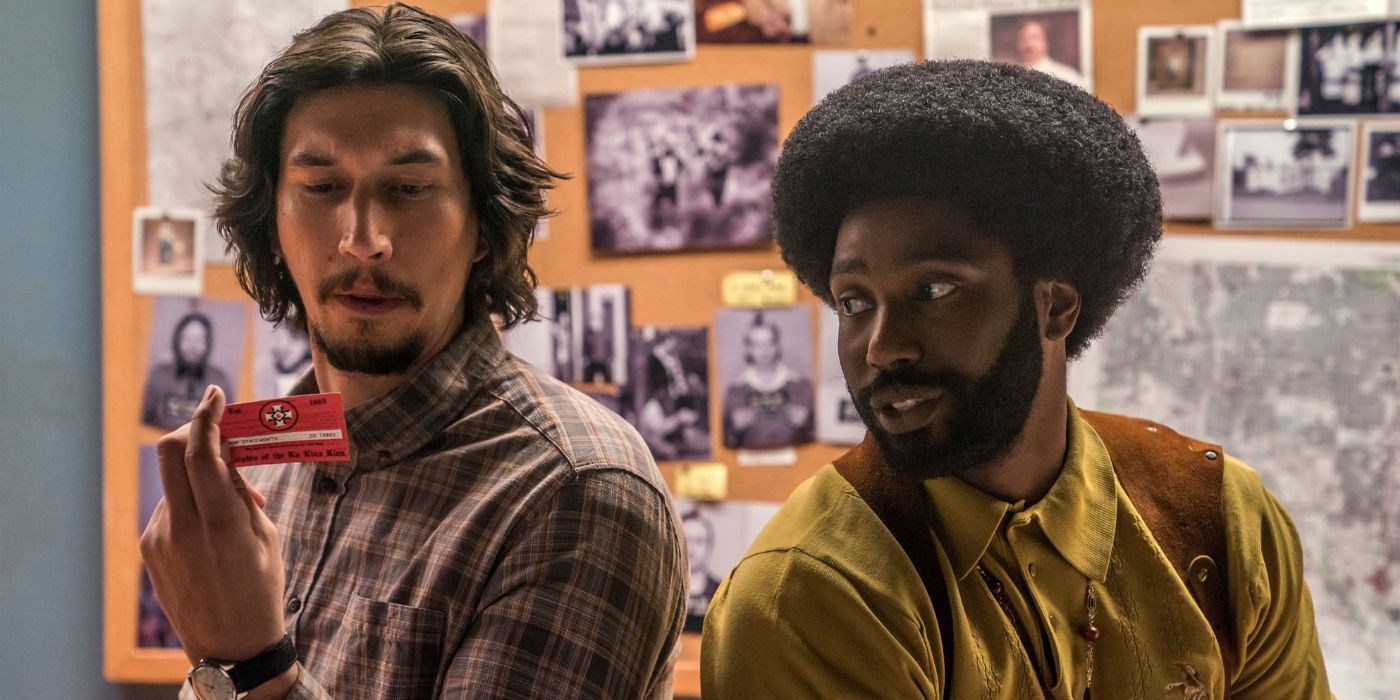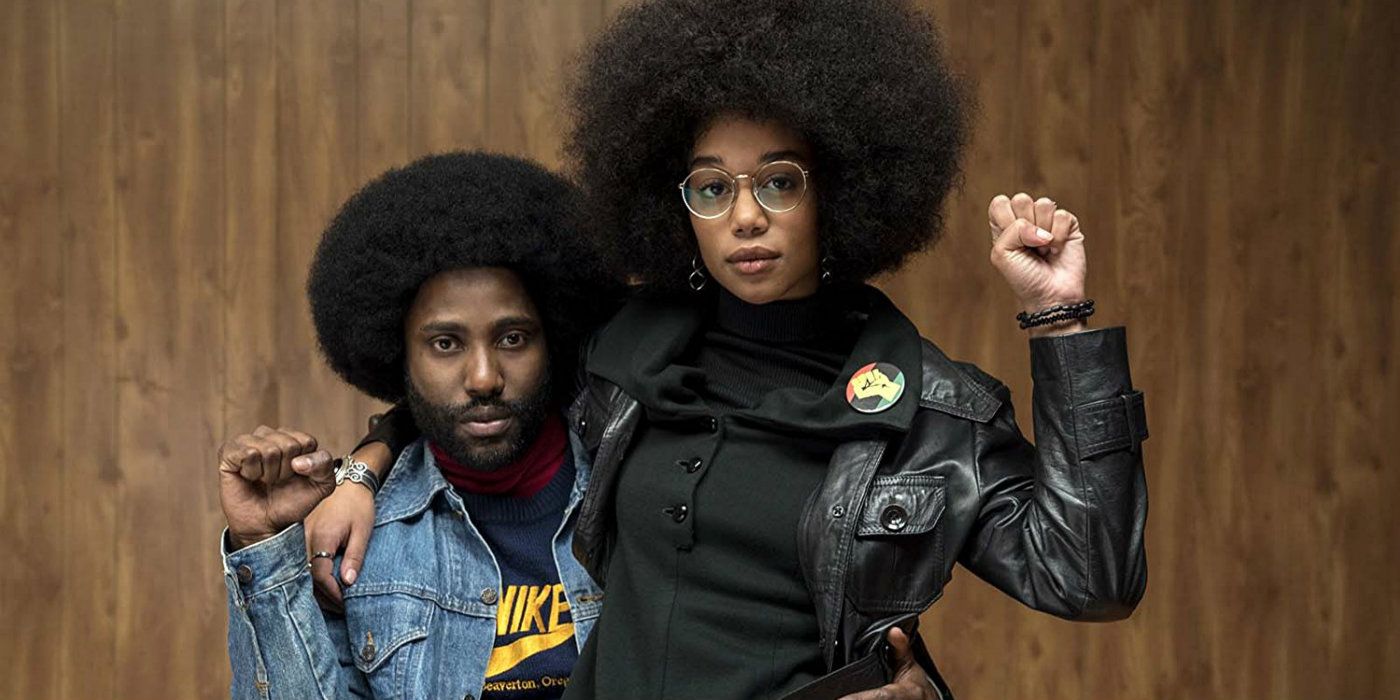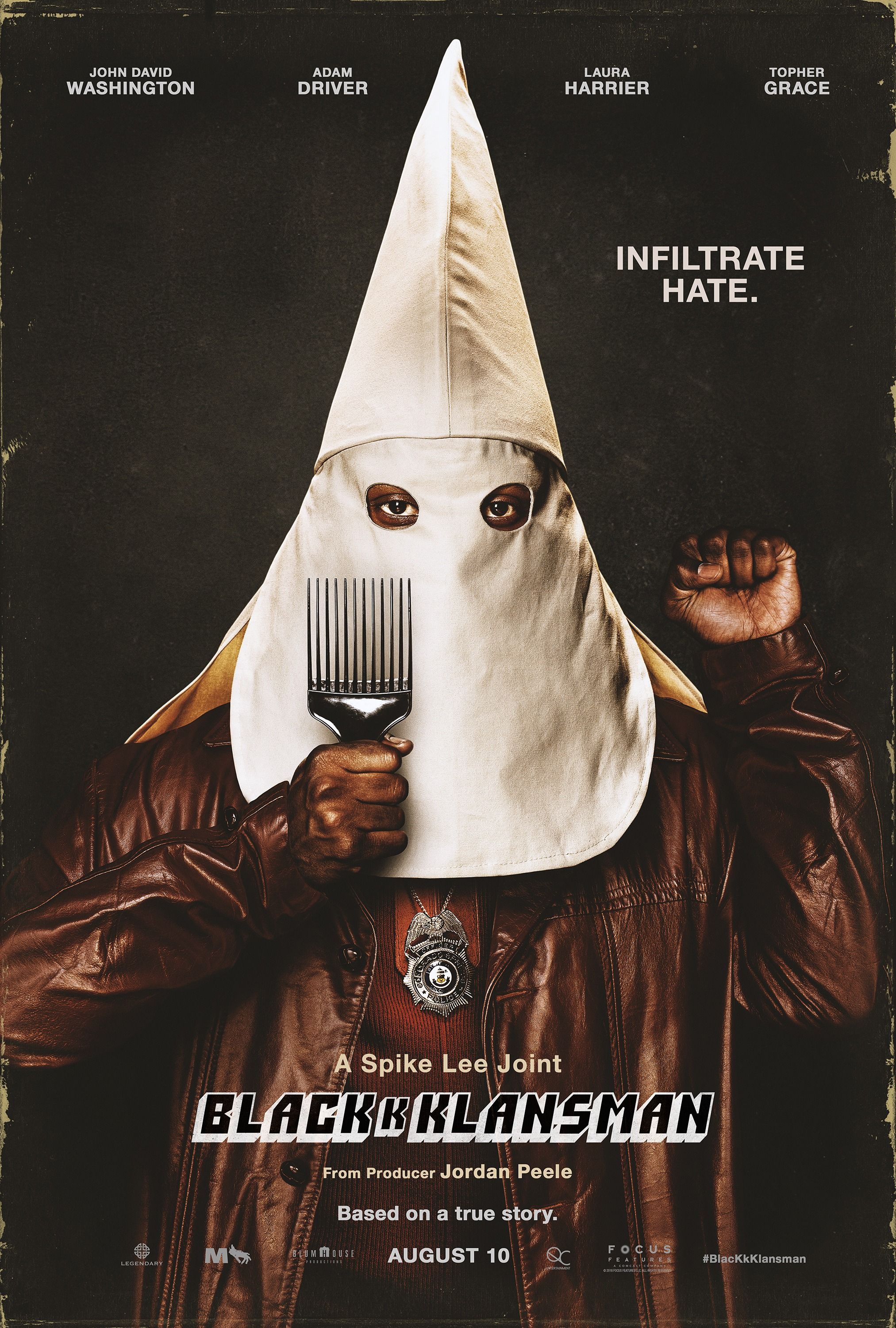BlacKkKlansman is a well-crafted dramatization of real events and one of Spike Lee's more effective cinematic sermons on racism in recent memory.
Spike Lee has something to say and says it loud with his new film, BlacKkKlansman. The legendary director of Do the Right Thing and Malcolm X has never been shy about expressing his political thoughts - to put it mildly - and his adaptation of Ron Stallworth's memoir, Black Klansman, gives Lee an opportunity to weigh in on the state of racism in America in the era of President Donald Trump. Working alongside a team of writers that includes his Chi-Raq collaborator Kevin Willmott, Lee uses Stallworth's tale to take on a number of hot button issues and topics, all while telling the (true) story of one fascinating undercover operation. BlacKkKlansman is a well-crafted dramatization of real events and one of Spike Lee's more effective cinematic sermons on racism in recent memory.
John David Washington stars in BlacKkKlansman as Ron Stallworth, a young man who becomes the first black police officer in the city of Colorado Springs, Colorado, when he joins the force in the late 1970s. However, Ron's true ambition is to become a detective, which is why he agrees to go undercover and observe a speech by civil rights activist and "Black Power" proponent Kwame Ture aka. Stokely Carmichael (Corey Hawkins), when the latter visits Colorado Springs. While there, Ron meets and befriends Patrice Dumas (Laura Harrier), a member of the black student union at the city's local college. He is then assigned to the police department's intelligence section, for his efforts.
Some time later, while reading the city newspaper, Ron happens on an ad for people to join a local chapter of the Ku Klux Klan. Much to his fellow officers' surprise, Ron calls the KKK in response to the ad and, thus, sets in motion an ingenious scheme - one where he will converse with the Klan over the phone and his partner Flip Zimmerman (Adam Driver) - a white Jewish man - will pose as him, when the Klan wants to meet up in person. Ron's plan works so well that, before long, he even finds himself talking with David Duke (Topher Grace), the infamous "Grand Wizard" of the KKK. But can Ron and Flip keep this charade going long enough for them to stop the Klan's plans to terrorize Colorado Springs with a literally explosive act of violence?
In addition to being co-written and directed by Lee, BlacKkKlansman was produced by Get Out collaborators Jason Blum and Jordan Peele. It's all the more fitting, considering that Lee's docudrama is a "social thriller" that addresses the real-world horrors of racism and racial hatred. That's not to say that BlacKkKlansman ignores the darkly funny side of a story about a black police officer successfully infiltrating and then ascending the ranks of the KKK, but it's far from the buddy comedy that some of the film's marketing would have you believe. Instead, Lee's film examines the sickening reality of what the Klan represents (read: white privilege) and makes it painfully clear how much these events from the past continue to resonate in the present.
Similarly, Lee doesn't refrain from drawing distinct parallels between the way of life in BlacKkKlansman's setting and the status quo some 40 years later, in the present-day. In particular, the director explores the role that mass media has played in perpetuating racist attitudes over the years, starting with the film's opening: the famous Battle of Atlanta shot from Gone with the Wind. Lee further examines the lasting impact of The Birth of a Nation on American culture and reflects on both the positive and negative iconography of classic Blaxploitation cinema, while also incorporating flashy '70s-era stylistic flourishes (like split screen shots) into the proceedings, as a way of paying homage. If all that wasn't enough, BlacKkKlansman ultimately extends its gaze even further by looking at how the Klan uses radio, contrasting the concepts of "White Power" and "Black Power" (and what they really represent), touching on police brutality, and - in its most powerful moment - connecting its story to recent events like the Charlottesville white supremacy rally.
That's a whole lot for a single film to take on and BlacKkKlansman unsurprisingly ends up being messy and long-winded in its attempt to cover that much ground, while at the same time just letting Stallworth's story speak for itself. Likewise, some of the plot threads here (especially, the relationship between Ron and Patrice) come off feeling undercooked, as a result of the film prioritizing its messages over its narrative. Lee's sense of craftsmanship is as refined as ever here, however, and helps to smooth out some of these wrinkles, via the striking visuals by cinematographer Chayse Irvin (who shot Beyoncé's Lemonade and Sorry videos) and some great musical cues by Lee's trusted composer Terence Blanchard (including, one recycled from an earlier film of theirs). At the same time, BlacKkKlansman doesn't necessarily advance Lee's craft in a way that might have benefitted the movie, as a whole.
BlacKkKlansman doesn't spend too much time fleshing out its characters, either, and is more interested in observing how their ideals evolve (or don't evolve) over the course of their experiences here. Washington, who is the son of Lee's frequent leading man Denzel Washington, is perfectly engaging as the movie's protagonist and has solid chemistry with the actors around him (Driver and Harrier in particular), making Ron's journey all the more interesting to follow. The film's supporting cast is further strong across the board, with nary a weak link among them; that includes the actual Klansmen, played memorably by names like Paul Walter Hauser, Jasper Pääkkönen, Ryan Eggold, and (an extra WASPy) Topher Grace. BlacKkKlansman also boasts a number of special cameos which vary in their tone and style, but by and large serve the movie's purposes (and are best left unspoiled, ahead of time).
In the end, BlacKkKlansman still makes for one of Lee's best films in awhile, despite its over-ambitious and otherwise flawed approach. It may not be as ground-breaking (either thematically or stylistically) as Lee's previous ventures into the areas of docudrama and/or documentary filmmaking, but BlackKkKlansman certainly has its thumb on the pulse of the zeitgeist and isn't afraid to make a blistering statement, in classic Spike Lee fashion. With that in mind, a word of caution: BlacKkKlansman doesn't shy away from the brutal horrors of bigotry and its unflinching study of racist language and hate crimes might trigger painful emotions and feelings in some moviegoers. Ron Stallworth's story very much deserves to be told, but viewers should definitely prepare themselves mentally ahead of time, for those reasons.
TRAILER
BlacKkKlansman is now playing in U.S. theaters nationwide. It is 135 minutes long and is rated R for language throughout, including racial epithets, and for disturbing/violent material and some sexual references.
Let us know what you thought of the film in the comments section!





